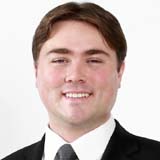Professor Easley’s study of Myanmar’s strategic decision to reform and open, co-authored with Dr. Jonathan Chow of the University of Macau, is the lead article in the September issue of Pacific Affairs. Chow and Easley evaluate competing explanations for why Myanmar’s leaders pursued liberalizing reforms since late 2010 that have effectively shed the country’s “pariah” status. Drawing on newly available materials and recent field interviews, the article examines whether the strategic decision was motivated by fears of sudden regime change, by socialization into the norms of the Association of Southeast Asian Nations (ASEAN), or by the geopolitics of over-reliance on China. The Myanmar case demonstrates how difficult it is for international actors to persuade a pariah state through sanctions or engagement, given a pariah regime’s intense focus on maintaining power. However, reliance on a more powerful neighbor can reach a point where costs to national autonomy become unacceptable, motivating reforms for the sake of economic and diplomatic diversification. The analysis should be of interest to students of authoritarian transitions, observers of Southeast Asian politics, and experts looking for comparative cases with North Korea.
*Jonathan T. Chow and Leif-Eric Easley, “Persuading Pariahs: Myanmar’s Strategic Decision for Reform and Opening,” Pacific Affairs, Vol. 89, No. 3 (September 2016), pp. 521-542; http://www.ingentaconnect.com/

 Facebook
Facebook Twitter
Twitter